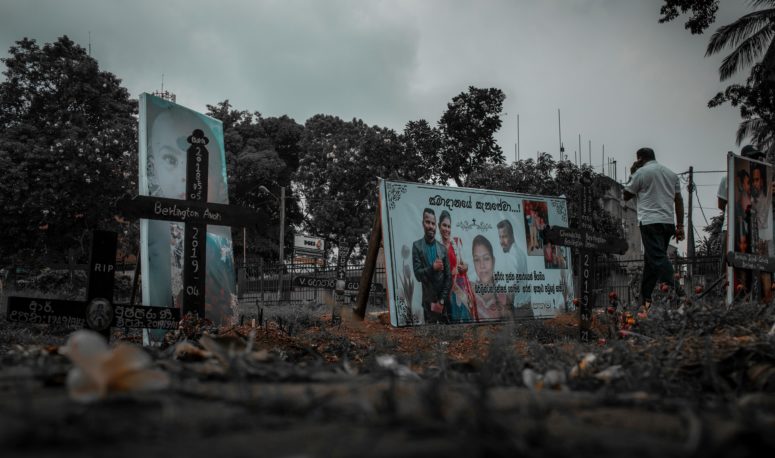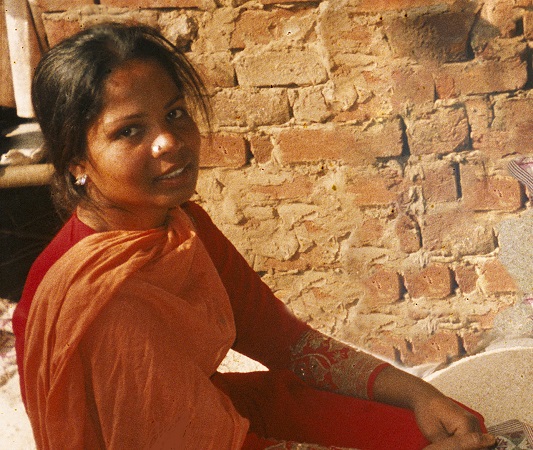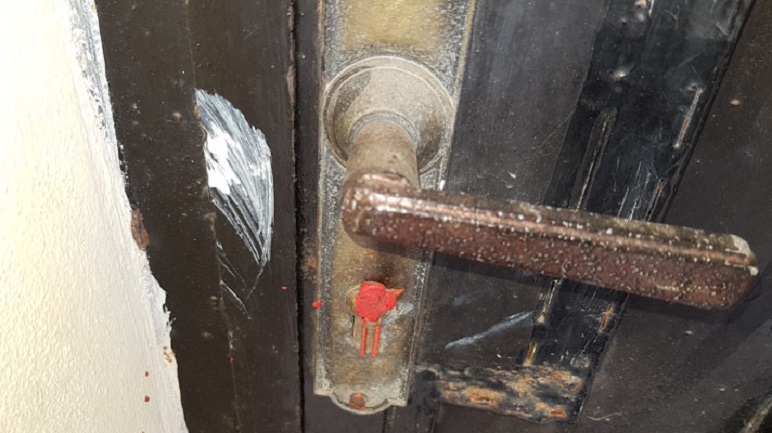
• In Sri Lanka on Easter Sunday more than 250 people, 45 of them children, were killed in attacks on three churches and hotels; more than 500 people were injured.
• Bombs killed 20 at a Catholic church in Jolo in the southern Philippines.
• In China, state-sanctioned and ‘underground’ churches have been harassed or shut down in at least 23 provinces. In Xinjiang, at least one state-sanctioned church is known to require congregants to queue for facial recognition checks.
• In the West African state of Burkina Faso, violent Islamic militants have killed church leaders, kidnapped families for ransom and burned down churches and schools.
• In Egypt, seven Coptic Christians were killed when terrorists attacked their bus as they visited a monastery. The attack was in the same place where 28 Copts were killed less than 18 months before, when masked gunmen opened fire on their vehicles.
• In Iran, 194 Christians were arrested, 114 in one week just before Christmas 2018; several house churches were raided across nine cities.
In the latest annual survey of countries around the world to monitor how difficult it is to live as a Christian, the overall trend in the World Watch List (WWL) 2020 is that 73 – as in WWL 2019 – showed extreme, very high or high levels of persecution*.
Among the World Watch List’s top 50 alone, 260 million Christians face a level of persecution measured as extreme, very high, or high.
Open Doors International, which creates the annual list, estimates there are at least a further 50 million Christians facing high levels of persecution among the 23 countries that did not rank high enough to qualify for the top 50.
Altogether, it says that that’s 1 in 8 Christians worldwide who face persecution measured as extreme, very high, or high.
The List, based on extensive surveys combined with expert interviews and released yesterday (15 January) peers behind the global headlines of cases such as the Pakistani Christian woman Asia Bibi, who was finally freed from death row to start a new life in Canada in May 2019.

In some countries — China and Eritrea, for example – it is governments that pressure Christians, sometimes with violence. In the Middle East, South-east Asia, East Africa and the Sahel, it is other forces that make life for Christians insecure. In the Sahel, especially, the rise of Islamist militancy has become a challenge not only to Christians but also to the existence of states and governments in the region, and thus to the rest of the world.
“Since 1992 Open Doors has been monitoring the plight of Christians persecuted for their faith around the world,” said Open Doors International Chief Executive Dan Ole Shani. “From World Watch List 2002 onwards, North Korea has ranked as the worst country for them. This year Afghanistan is a close second, then Somalia. We’ve seen little change in the Top 10 this year, which includes conflict-torn countries such as Libya and Yemen. But the number of countries where Christians face a high level of persecution has grown due to increasing pressure and violence from their families, work colleagues, communities, police, legal systems and state structures.”
The only change in the top 10 countries from WWL 2019 is that Sudan and Eritrea have swapped their No. 6 and 7 places. In Sudan, little has changed so far for the nation’s Christians, despite the ousting of President al-Bashir after more than 30 years.
As for Eritrea, in May 2019 the UN heard that hundreds of Christians face detention as “religious freedom continue[s] to be denied”. In June, the government suddenly seized and closed all 22 Catholic-run health clinics and arrested five Orthodox priests. In August, Eritrea’s Orthodox patriarch, placed under house arrest by the government in 2007, was expelled from his own Church on accusations of heresy by pro-government bishops.
The top 11 countries on the 2020 list have an ‘extreme’ level of persecution, the same number of countries as 2019 and 2018.
India, which entered the Top Ten for the first time in WWL 2019, stays at 10 this year. Hindu nationalist extremism has grown after the BJP-led government under Narendra Modi won a second term in May 2019. The analysts of the World Watch List registered a minimum of 447 incidents this year. However, fewer Christians were killed than on the WWL 2019.
Two of the world’s most numerous Christian populations, one in a secular democracy, the other in a Communist state, face ‘extreme’ (India) and ‘very high’ (China) levels of persecution – albeit expressed through very different ways.
China has risen four places this year, from no. 27 in WWL 2019 to 23. The average score for pressure on Chinese Christians rose; it increased in all spheres of life, as new regulations on religion rolled out countrywide. These restrict not just the so-called ‘underground’ house-churches, but also state-sanctioned churches in the Three Self Patriotic movement (TSPM) and the Chinese Catholic Patriotic Association. Religion is banned from the public sphere; some teachers and medical staff have been pressured to sign documents saying they have no faith. In some areas, elderly people have been told their pensions will be cut if they do not renounce their Christian faith. All this comes against a backdrop of increasingly all-pervasive surveillance via facial recognition and other technology.
Across the top 50, pressure is rising. In 2020, 34 countries registered a ‘very high’ level of persecution. Last year, the number was 29.
Nigeria, staying at no. 12, scores the maximum for violence as it did in WWL 2019, due mainly to violent Fulani militants attacking Christian communities and churches, as well as to Boko Haram and a range of armed criminal groups who kill, kidnap and rape with impunity.
Mostly there have been few changes since WWL 2019 in the List numbers 13-25. Here are the main exceptions:

Algeria rises to 17 (from 22 in WWL 2019)
Of the estimated 129,000 Christians, just under 1 in 3 relate to 46 churches of the Eglise Protestante d’Algerie (EPA). In the 12-month period covered by this List (1 November 2018 – 31 October 2019), 11 EPA churches were closed down and police assaulted its president, and others, when they came to close his 1000-member church in October. The EPA still lacks official status (after being forced to apply for re-registration in 2013) despite trying to meet all legal requirements.
Morocco rises to 26 (from 35 in WWL 2019), Qatar rises to 27 (from 38 in WWL 2019)
Pressure in all spheres of life remains ‘very high’ to ‘extreme’ (for ‘Church life’); overall, these two score only 3 or 4 points more than last year.
Burkina Faso rises to 28 (from 61 in WWL 2019)
This West African country has risen faster and farther on the list than any other; in WWL 2019 it was not even among the top 50. At least 50 Christians are known to have been targeted and killed for their faith. In the north, violent Islamic militants have singled out villagers wearing crosses to kill them. Churches, schools and Christian NGOs have been attacked, or have closed out of fear; militants attack with impunity. Burkina Faso’s score for violence has doubled from WWL 2019, in a country previously known in the region for its religious tolerance and lack of conflict.
Sri Lanka rises to 30 (from 46 in WWL 2019)
This is due to the Easter bomb attacks in April 2019.
Bangladesh rises to 38 (from 48 in WWL 2019)
The threat of violence from Islamic militancy is a danger for the Church. In April 2019, for instance, a rural imam issued a fatwa “If you kill one Christian, you will receive blessings equal to 100 Islamic religious martyrs”.
Colombia rises to 41 (from 47 in WWL 2019)
Conflict continues as the government’s 2016 peace agreement with rebels has effectively broken down. Church leaders have been killed, others receive death threats for refusing to pay protection money to armed groups. Even when they report such threats, they do not receive any response from the authorities.
Finally, beyond the 50 countries on the World Watch List, 23 more countries (ranked 51-73) also score the same ‘high’ level of persecution scored as those at the bottom of the Top 50 – the Russian Federation, United Arab Emirates, Cameroon, Indonesia and Niger. While Indonesia has dropped from 30 to 49 this year, Cameroon (48) has entered the Top 50 for the first time and Niger (50) has re-entered it, mainly due to the rise in radical Islamic influence across Sub-Saharan Africa.
(*Persecution is said to be ‘extreme’ when a country scores 81 or more points out of 100; ‘very high’ is 61 or more, ‘high’ is 41 or more).